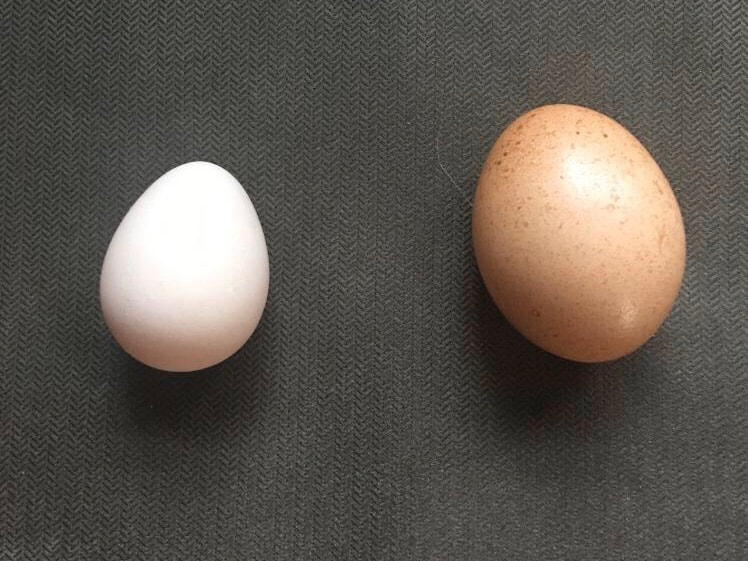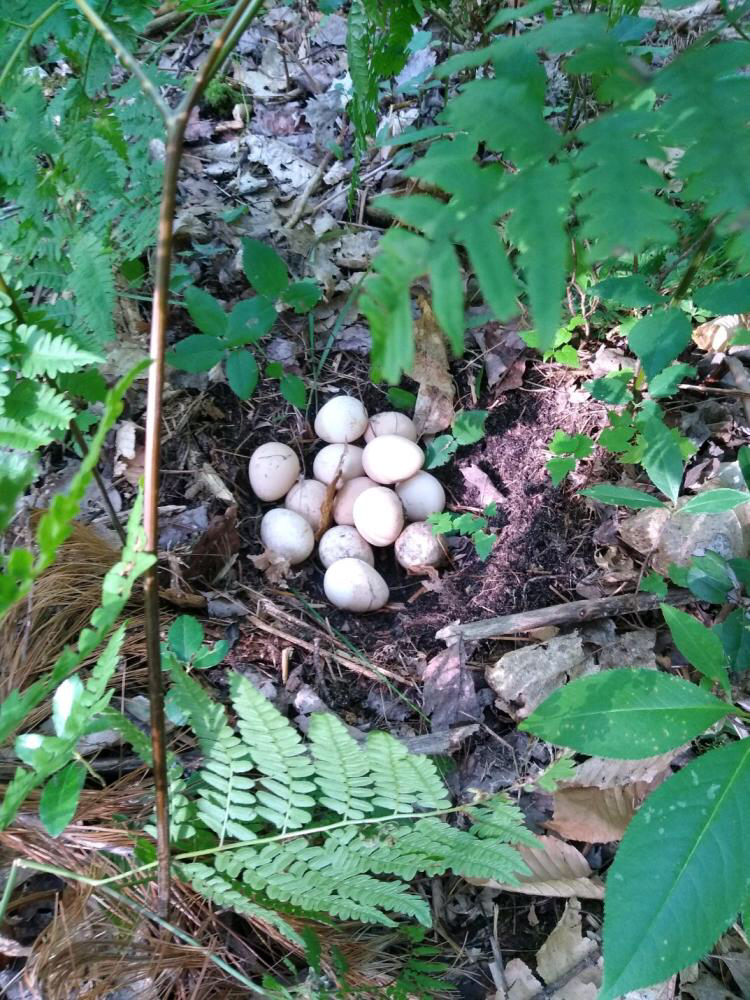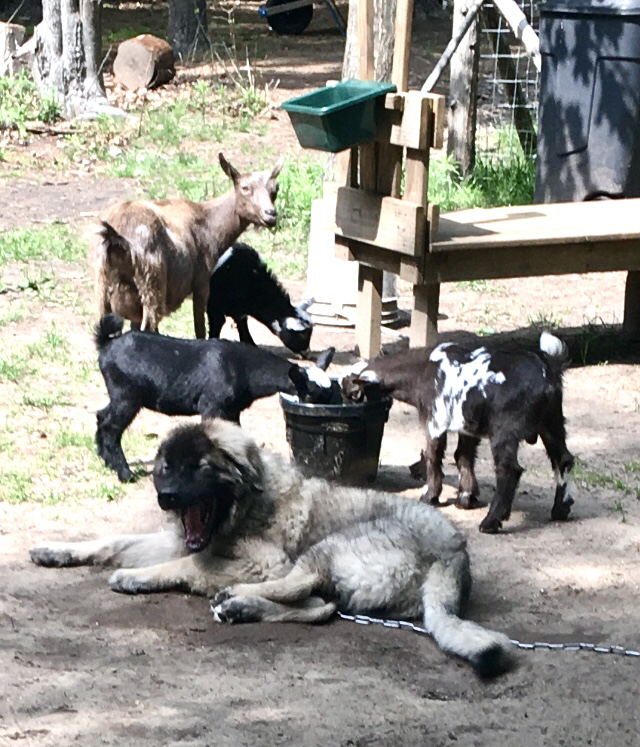|
7/14/2021 One of these Eggs is not like the OtherHow do you know the difference in the quality of food? Take an egg, for example. An egg is an egg is an egg is an egg, right? After having guineas on our farm for over two years now, we have learned that the answer to that questions is a big, steadfast NO! You can get a chicken to lay an egg if they are fed organic, non-organic, soy, or soy-free. You can get a chicken to lay an egg if they are factory farmed and confined to small, tight spaces, or if they live on a holistic farm and are allowed to free range on grassy and/or woodland pastures. The beauty of an egg, however, is that you can literally SEE and TASTE the difference. There are even subtle nuances between two eggs that come from two different farms that value similar farming practices. Now multiply this "difference" in sight and taste by 10. Divide it by 3. Take out the remainder of 5. Add two and multiply it by 25. WOW. Just kidding. No need to do math. Just look at the pictures on this blog post, and, folks, meet the GUINEA EGG! On our farm we refer to guinea eggs simply as, . . . drum roll, please . . . The Golden Egg. We believe this wholeheartedly. No family member or friend gets to try guinea eggs unless there is a special reason to give them some. Right now, they are the caviar of our woods, a seasonal delicacy to be savored, and, well, sautéed in a pan, preferably with a nice amount of butter or lard. Guinea egg yolk was the first thing our daughter ate as she began to try food at 6 months old. You can think of many reasons why a guinea egg could be compared to gold. These reasons have many positive connotations associated with them. All of them apply. *** Let's take a brief intermission and get one thing straight before I continue to travel with you down this blog post. Guineas are loud and difficult to train. They have a couple negative stigmas attached to them and there is a lot of truth to them. But if someone looks beyond, and can get past the occasional loud "BUCK WHEAT, BUCK WHEAT, BUCK WHEAT" and "CHI-CHI-CHI-CHI-CHI" noises, it's well worth it. *** Guineas are the feathered version of a livestock guardian dog. They are ever watchful, curious little creatures that will sound the alarm if there is a predator, especially aerial. They can run so fast they look like they are flying on a broomstick. If anything is different on our farm, they are there to check it out. Was the wheelbarrow left in a different place? Was there a shovel left on the ground? The guineas know, trust me. They have a way about them of sticking their necks out really far and bobbing their heads up and down if they are cautious of something new. We jokingly mimic this all the time. Our guineas have access to the same fermented organic, soy and corn free, non-gmo grain that our chickens do. They are happy to eat it, but in the spring, summer, and fall, that is just a small supplement to their diet of bugs, grasses, strawberries (they love them), field mice, toads, salamanders, etc. They fend for themselves a lot of the time, certainly a very good trait to have for a farmer's pocketbook. Our guineas hide their nests in the thicket of the woods, never more than a couple hundred feet from their coop. The guinea cock builds the nest. He picks the perfect spot and rubs his body against the ground to create a nest indentation. The hens then use this nest every day. He stands guard while they lay. The ultimate companion. We love our guineas at our farm. With their unique appearance, speed, vigor, nimbleness, and curiosity they are one of the animals that are an absolute pleasure to have around. Best of all, they have retained a lot of the wild traits that have been bred out of chickens. A guinea cock will not run the hens ragged and is an absolute protector, willing to sacrifice his life in order for the hen (or hens) to be safe.
Most of all, guineas are a true testament to what food looks like if animals are raised how they should be: lots of space and freedom to roam freely, foraging for high quality, natural food. It is our farm family's opinion that no egg will ever compare to the little oval shells filled with "caviar" that we get from our woods. The Golden Egg. CHI-CHI! 7/12/2021 Around the Farm . . .Things are a little busy right now at Terroir Farm. New animals and new infrastructure have taken ahold as the defining "ripe fruit of the summer". With so much "new" (new LGD, goats, chickens, and hogs) It's easy to feel like one is on a never-ending time crunch to get things done. Summer only lasts a short few months in northern Michigan. All the time, the animals don't stop eating, growing, and doing a little bit of providing. With all of this work, it will be exciting when they start to do a LOT of providing. They will be the future of our farm. But all the while things take time. It's not easy to build a farm from the ground up. Literally. When we moved here, nestled into the woods more than 700 feet from the road, surrounded by red oak, silver and red maple, white pine, beech, hemlock, birch, hop-hornbeam, and aspen, we thought it would be a perfect place to live and raise a family. As we got into the "back-to-the-land movement" things evolved. Being so heavily wooded, trees have their place. They are certainly necessary because of everything that they provide: a wide variety of foliage for foliage-eating goats, shade, fruit (acorns, hop-hornbeam nuts, beech nuts), beauty, and all of of the spiritual qualities that are harder to put into words. They, however, need to be tended and cared for in order to thrive. Untouched forests have their place, but a land that is in balance and harmony with livestock needs a little tender loving care. Every time we add more pieces to our farm, the forest must be manicured first, with an ideal space that allows the specific type of animal to thrive. Trees need to be chosen as "keepers" for the future. Trees need to be chosen as firewood for winter warmth. A lot of thought must go into each tree that is kept or cut down. Many of these decision will be made trying to look decades into the future. So things take a while when adding new. This all being said, as the title of the post depicts, there is indeed a metaphorical circle "around" all of this work. If things are done right, the land AND the animals needs are taken into consideration. Everything relies on all of the interconnected parts. Those parts are vast and branch further than I can even comprehend. We are just at the cusp. The farm that we envision will be highly sustaining, possibly even having parts that are self-sustaining. As we add, in order to thrive, we must subtract. We must go through times of heavy work. It is through the completion of this work that a lucky farmer starts to see the potential of this circle. Healthy, vigorous trees and soil builds life-sustaining forage for animals that, in turn, provide sustenance, and allows a small farm family a glimpse at what things could be like if we take the time to carefully implement what we have planned. "Around the farm" isn't just conversational. It's transcendental. |
AuthorWhen she's not baking bread Amanda enjoys going for walks with her girls and making goats milk ice cream. Archives
March 2022
Categories |



 RSS Feed
RSS Feed